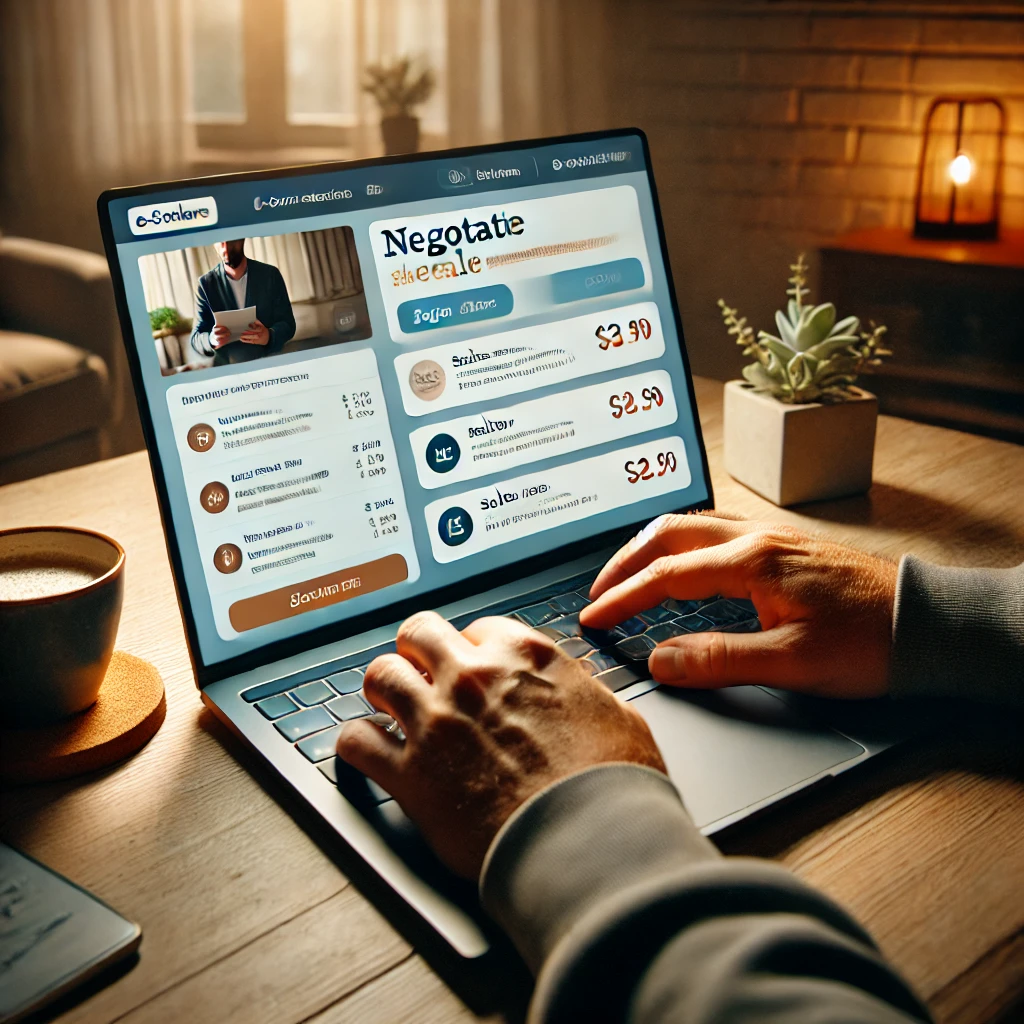The Art of Negotiation: Master the Skills to Get the Best Deals Every Day

Negotiation isn't just a skill reserved for business deals or high-stakes contracts—it’s an art that can significantly improve your everyday financial decisions. Whether you're haggling at a flea market, negotiating a lower price on a subscription, or trying to snag a better deal on a major purchase, mastering negotiation can save you hundreds, if not thousands, of dollars over time.
This guide will explore proven techniques to help you secure the best deals, boost your confidence in negotiations, and build financial savvy that pays off in your daily life.
Why Negotiation Matters in Everyday Purchases
Negotiation isn't just about saving money; it's about value. By honing this skill, you can:
- Stretch Your Budget: Negotiation creates room in your budget to allocate savings elsewhere.
- Boost Financial Wellness: As outlined in our financial wellness tips, managing income and expenses effectively includes lowering costs where possible.
- Build Confidence: Successfully negotiating even small purchases can enhance your self-assurance in financial matters.
For a deeper understanding of managing money wisely, check out this guide to budgeting, saving, and investing for financial success.
Mastering the Foundation of Negotiation for Everyday Deals
To negotiate effectively, you need a strong foundation. Let’s break it down:
Why Research Is Crucial for Savings
Understanding the market value of what you’re buying is critical. When shopping for electronics or high-ticket items, check prices on multiple platforms and note seasonal discounts. Price comparison tools and websites like CamelCamelCamel for tracking Amazon prices can be invaluable.
Setting Your Budget Limits Before Negotiation
Decide in advance what you’re willing to spend. This prevents emotional purchases and ensures you stick to your financial goals. For more on setting financial boundaries, explore our guide on frugality and minimalism.
Proven Negotiation Techniques for Everyday Savings
Master these tried-and-true strategies to get the best deals:
Using the Anchoring Effect to Your Advantage
The first price mentioned in a negotiation often sets the tone. Always start with a lower number than you’re willing to pay. This gives you room to negotiate up while staying within your budget.
Leverage Bundle Deals to Maximize Value
If you’re purchasing multiple items, ask for a discount on the total. For instance: “If I buy two of these, can you give me a 10% discount?”
The Power of Silence in Negotiation
When a seller quotes a price, don’t rush to respond. A moment of silence can make them second-guess their offer and potentially lower it.
Highlight Competitor Pricing for Leverage
Bring up competitors’ prices if they’re lower. For example: “I saw this item for $10 less at another store—can you match it?”
For even more strategies, explore our money-saving shopping strategies.

Everyday Scenarios Where Negotiation Works
Retail Shopping
Many people assume prices are non-negotiable at big-box stores. However, you can often request discounts on floor models, open-box items, or bulk purchases.
Utilities and Subscriptions
Cable, internet, and phone bills are prime targets for negotiation. Call customer service, mention competitor rates, and express a willingness to switch. Companies often have retention offers to keep you as a customer.
Home Services
Negotiating with contractors, cleaners, or landscapers can lead to better deals. Request multiple quotes, compare prices, and ask for discounts for long-term commitments.
For more insights, check out our financial resilience strategies.
Overcoming Common Negotiation Challenges
Fear of Rejection
It’s natural to fear being told no, but remember that negotiation is a conversation, not a confrontation.
Lack of Confidence
Practice makes perfect. Start with small negotiations, like asking for discounts on coffee or groceries, to build your confidence.
The Digital Age of Negotiation
Online platforms like eBay, Craigslist, and Facebook Marketplace are ripe for negotiation. Follow these tips:
- Message Sellers Directly: Express interest and politely ask if the price is negotiable.
- Use Alerts for Discounts: Many websites let you set price drop alerts to grab deals when prices fall.
For more on tech-driven financial strategies, visit our guide to top financial tools and apps.
The Long-Term Impact of Everyday Negotiation
Negotiation isn’t just about saving money in the moment—it’s about cultivating a mindset that values financial mindfulness. By incorporating negotiation into your daily routine, you’ll:
- Save Consistently: Small discounts add up over time, contributing to larger financial goals.
- Boost Financial Literacy: Negotiation sharpens your understanding of market values, consumer rights, and budgeting.
Explore our essential guide to financial literacy for more ways to elevate your financial acumen.
Negotiation is a skill that anyone can learn and apply to enhance their financial wellness. By adopting a strategic approach, doing your research, and practicing regularly, you can maximize value in every purchase while keeping your finances in check.
Start small, build your confidence, and watch as the savings—and satisfaction—roll in. Remember, every dollar saved is a dollar earned, bringing you one step closer to your financial goals.
For more tips on managing your money and achieving financial freedom, visit Money and Finance Update.
